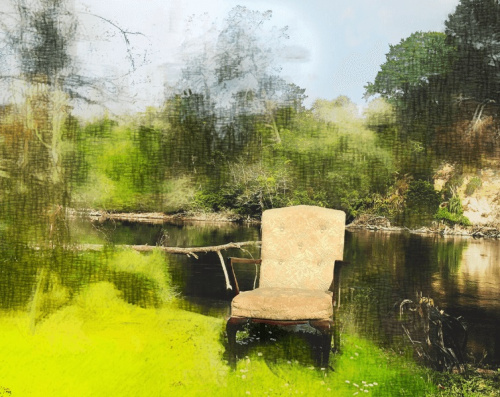AKAKITE MAI ITAAU TUA Tell Me A Story
23/02/2019 - 23/02/2019
Hamilton Gardens Arts Festival 2019
Production Details
Local creative dynamos share generational stories
Local creative dynamos, composer Jeremy Mayall and writer/director Benny Marama, team up to tell the story of Benny’s parents as they fall in love, emigrate to Aotearoa, separate and find each other again.
Weaving together real life stories with Māori and Polynesian mythology, an aural experience unlike anything heard before will be created. Heart-breaking and heart-warming, this is an examination of love found and love lost, as well as a celebration of the stories that have been passed down from generation to generation.
Riverside Terrace
Saturday 23 Feb, 6pm
$25 General Admission
$20 Concession
$75 Family (2 adults, 2 children)
*Booking fees apply
BUY TICKETS
Theatre , Spoken word ,
As tender as it is strong, as powerful as it is moving
Review by D.A. Taylor 24th Feb 2019
Benny Marama is one of the Waikato’s most gifted storyteller-performers, someone who can offer Falstaffian comedy and ferocious, heartbreaking tragedy with equal skill – and often in the same breath. And it’s his ability to move between these two that makes so much more of the other and so the both.
His latest work, a brilliant collaboration with the profoundly talented musician Jeremy Mayall, Akakite Mai Itaau Tua, rests more in the sobering camp as it reflects the journey of Marama’s parents’ courtship, move to Aotearoa, and the challenges of their adult lives.
The show lies somewhere between oration, poetry and concert, shifting between Marama’s narrative about his parents’ lives and the flawless orchestral music of the 11-piece band, as conducted by Jeremy Mayall. Each is superb on its own, but it’s the whole which is greater than the sum of its parts, each providing context and grounding for the other. As the overture begins, and the rolling sweep of the band melds with the Taonga Puoro by Horomona Horo, it feels as if we are already passing over boiling seas and into a transnational journey of mythic proportions.
In the prologue, Marama adopts almost Pythonesque impressions of this parents to explain the premise: he wants them to tell their story, in as much, he explains, as the title Akikite Mai Itaau Tua means both ‘a’ story and ‘your’ story. The narrative moves between myth-as-metaphor ‘past’ of Marama’s parents’ youths – here they are transformed into the Acolyte and the Maiden – and the more down-to-earth ‘present’: Marama discussing his project, requesting more information, guiding the story, revelations.
As it is with Marama’s performance talent, it’s the shift between the mythologizing of the past and the confrontation with the present that provides contrast and proportion to the other. And so the audience is held in rapture by the music and the myth, and brought to laughter by the light-hearted impressions of his parents.
At its strongest moments, Marama’s storytelling is nothing short of poetry: lucid, fluid, befitting of the mythological narrative he builds around his and his parents’ history. He channels legends of the Pacific Islands (especially the Cook Islands) to provide a lens of interpretation: his parents are the ‘Acolyte’ and the ‘Maiden’, and their courting finds inspiration in Hinemoa and Tutanekai; a ukulele and a guitar become weapons passed on to warrior sons; the uprooting journey to Aotearoa is also that of Kupe; the collapse of the family unit is the tragedy of Taakura. Family members become birds whose calls are brought to life through Horo’s Taonga Puoro against the backdrop of Mayall’s band. And the gravitas of the band with the nature of the narrative makes for a calibre of show unlike anything I’ve seen – professional, deft, deeply intimate, honest.
However, there are points where abstractions take over and the narrative loses clarity, the text needing perhaps one more quick polish to make clearer, for instance, who the birds have become in the sustained metaphor, or to replace abstract references to places or people with names to help provide a sense of bearing. This is a minor gripe, and I suspect that as the show travels (which I hope it does – it deserves to be seen by wide audiences) that opportunities will be found to hone off the rougher corners and let a little more light shine through this brilliant, moving work.
The pursuit of love and meaning undergirds this sensitive work, with a reconciliation with the past and a chance to heal. Marama bears himself and his family on stage in Akakite Mai Itaau Tua, and it’s that honesty that makes this work so affecting. With Mayall, Marama searches the past to make sense of his present, and in doing so this extraordinary set of creatives have produced something as tender as it is strong, as powerful as it is moving.
At the end of the night, with good reason, they receive a standing ovation. They should look forward to many, many more.
Copyright © in the review belongs to the reviewer





Comments